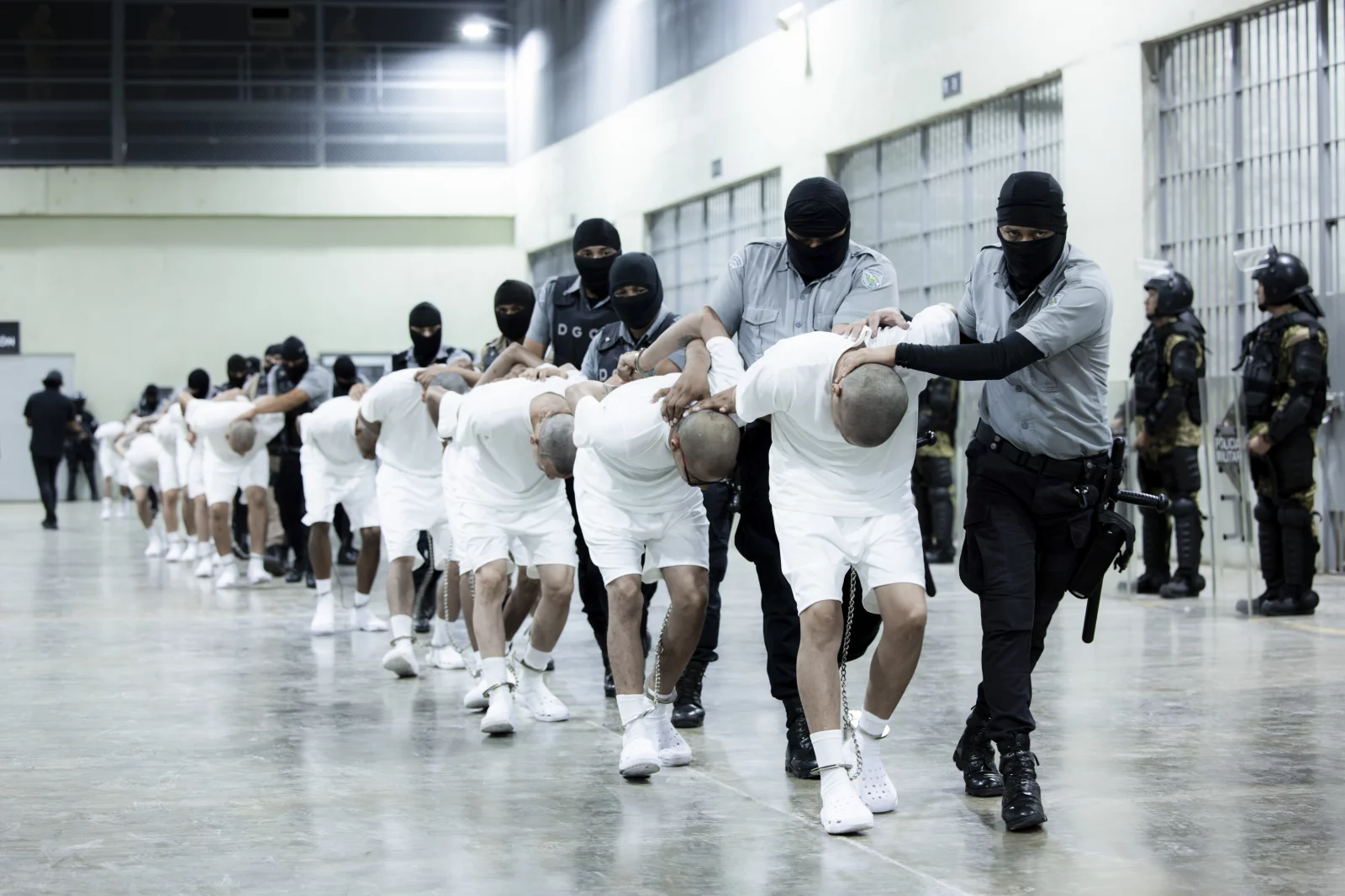
As of April 6th, the Trump administration incarcerated 238 Venezuelan migrants in an El Salvador maximum security prison, CECOT. There, they cannot call home, access attorneys, or communicate outside of the prison in any way. Trump and the Department of Homeland Security characterize these men as “illegal alien gang members,” but how are they actually ending up in this prison?
According to an American Civil Liberties Union (ACLU) court document, the DHS employs a point system to determine the potential of migrant involvement in the Venezuelan gang, Tren de Aragua (TdA). Allegedly, the DHS organizes criteria into six categories: criminal behavior, self-admissions, judicial outcomes, and relevant official documents are all considered. Additionally, the document claims that there are sections regarding tattoos, social media points, and familial relation and their potential correlation with gang membership. A tattoo is worth four points while digital communication with a known gang member grants the individual six. To be classified as a member of TdA, one must have eight or more points, but ICE can still classify people with six or seven points, depending on consultations and documentation.
This alleged point system has massive potential for misidentification: the ACLU found “contradictory information” in member identification standards. Despite no factual connection between those images and the TdA, a rose or clock tattoo can serve as evidence. Some “evidence” borders on ludicrous—apparel from US sports teams that feature Venezuelan athletes can allegedly indicate affiliation. Additionally, many deported individuals had no criminal records. A CBS News report found that approximately 75% of the Venezuelan migrants sent to CECOT had no apparent criminal history. Despite this, they were detained under the Alien Enemies Act, a law dating back to 1798, which the Trump administration invoked to expedite these deportations.
The government has remained extremely tight-lipped about CECOT, deportation criteria, and current practices. What is important to remember is that even if somebody is part of a gang, membership does not single-handedly justify incarceration, especially in a maximum security prison. These people are being deprived of due process, most likely on the basis of faulty, overzealous criteria and racially charged stereotyping. We do not know what is happening in CECOT, or even the extent of who is sent there, but what is blatantly clear is that the Trump administration’s actions raise serious human rights concerns—detaining people without trial, based on vague or racially coded criteria, in a foreign prison known for harsh conditions, sets a dangerous precedent for due process and democratic accountability.
Cover photo courtesy the AP.